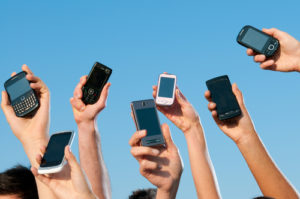More News from eCampus News
Millennials feel financially unstable–continuing education may be the solution
Motivated by the need for financial stability, career advancement, and being able to provide for their families, furthering their education is a priority for millennials in 2025.
Redefining accessible, AI-powered global higher education
On February 14, 2025, the University of the People (UoPeople) reached a historic milestone by achieving full regional accreditation from the WASC Senior College and University Commission.
Can GenAI fight academic burnout?
Balancing resources such as textbooks, articles, lecture slides, syllabi, notes, and study guides can overwhelm students, affecting their comprehension and potentially impacting their readiness for life after graduation.
EDUCAUSE launches AI readiness assessment
With support from Amazon Web Services, EDUCAUSE has launched the Higher Education AI Readiness Assessment to help higher-ed IT leaders gauge their institution’s preparedness for strategic AI initiatives.
Cutting costs while maintaining value: The challenge for higher education
The Trump administration’s announcement that there will be a reduction or suspension of funding for university research has cast a new wave of uncertainty over a sector that is already grappling with demographic challenges.
Halting education research in the name of ‘government efficiency’ is incredibly inefficient
In recent weeks, we’ve seen federal and state governments issue stop-work orders, withdraw contracts, and terminate employees in the name of “government efficiency.”
Is higher-ed prepared for admissions challenges?
More than half of higher-ed admissions professionals believe AI will impact admissions, and declining enrollment remains a challenge, according to Acuity’s 2025 University and College Admissions Trends Report.
Trump administration launches civil rights investigation into schools
The U.S. Department of Education’s Office for Civil Rights announced investigations March 14 into 45 colleges and universities that partnered with an organization that provides mentorship and support for PhD candidates from underrepresented backgrounds.
A seismic shift in student loan repayment: Implications for borrowers and the economy
The suspension of income-driven repayment plans marks a turning point in the student debt crisis. Millions of borrowers who had relied on these plans to keep their loans manageable are now being thrust into repayment plans that many simply cannot afford.
3 ways to show appreciation for your higher-ed employees
Key points: Employee retention strategies are complex, interlacing multiple layers of programming and recognition. However, the most sophisticated employee retention strategy, drawn up by the priciest corporate consultant, will fail…










